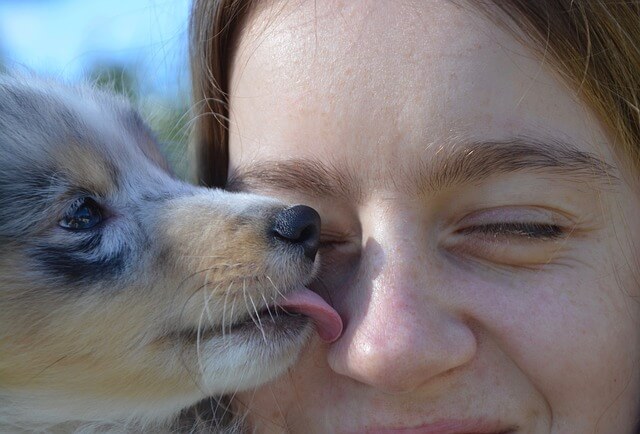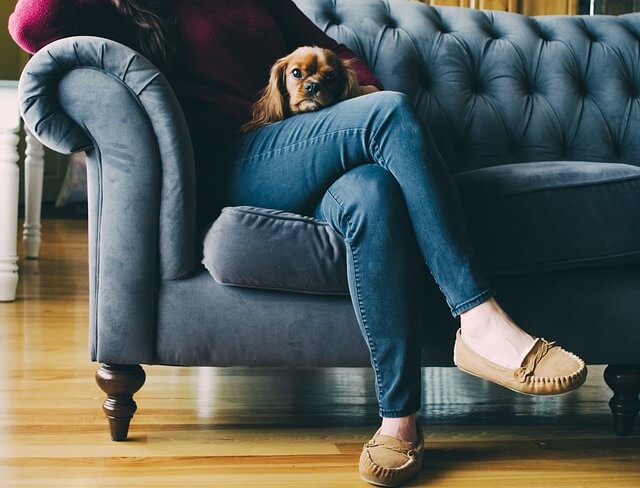Anyone who spends time with dogs knows that they can act jealous. Dogs can act jealous or protective over items or people. It can become a big problem when the object of the jealousy is a spouse. This type of jealousy is damaging to the bonds between both people and dogs.
For human beings, jealousy is thought to be a complex emotional and cognitive response. Some have said that jealousy is too intricate for dogs to feel, but most dog lovers would disagree. So why do some dogs seem to react jealously towards a spouse?
A study detailed for PLOS One in July 2014 showed that dogs do act jealous as defined by a scale used for infants. In the study, owners were placed in a room with their dog, but asked not to interact with the dog. Each pair was presented with an item, either a lifelike stuffed dog (that was able to bark and move) or an inanimate object (to act as a control). The owner was asked to interact with each item exactly as they would with their dog, but to ignore the dog.

Most of the dogs seemed to perceive the stuffed dog as an actual dog, sniffing and responding to it. In the dogs that seemed to identify the stuffed dog as an actual dog, most acted jealously. Some were aggressive toward the stuffed dog and some just tried to go between the owner and the stuffed dog, pushing it away and attempting to distract the owner from it. In contrast, none of these dogs seemed to feel threatened by the owner’s interaction with the inanimate object. The authors concluded that dogs do experience jealousy.
It stands to reason that competition for the attention of a loved one would precipitate an even greater jealous reaction. Jealousy toward a spouse is probably individual and multifactorial, but here are some of the possible reasons.
1. Resource Guarding
Jealousy may have evolved as a resource guarding behavior. You are probably a valued resource to your dog. When your spouse distracts you from him, he feels that his resource is threatened. Resource guarding is a natural instinct among animals.

2. Sibling Rivalry
Sometimes our dogs might view us as siblings in a litter in which there is competition for the family resources (mostly the mother). Since our dogs are a part of our families, this might explain some of the cases of jealousy. If your dog sees you as a parent figure and your spouse as a sibling, it could explain jealous behavior.
3. Emotional Jealousy
Some feel that emotional jealousy is human-exclusive. According to Personality and Social Psychology Review in 2003, human jealousy was the third leading cause of non-accidental homicide, so it is a source of angst and passionate reactions for us. Our dogs have evolved very closely with us and it does not seem far fetched that they could experience emotional jealousy too, but more work will have to be done to prove it.
Because jealousy may be a normal instinct for your dog, it does not mean that he should be allowed to act negatively to people that he feels competitive with. Watch his body language carefully in situations that you know to be risky for him. Distract him before he growls or even tenses. Show him with a reward that you are pleased when he reacts calmly or obeys a simple command in these situations.
Your dog may feel selfish over things he thinks that he needs to survive and he may also feel some emotional protectiveness as well. As time goes on, we are coming to realize just how complex, sensitive, and intelligent our canine friends are.
Do you want to know more about dogs and other animals? Follow me on Facebook by clicking here.
